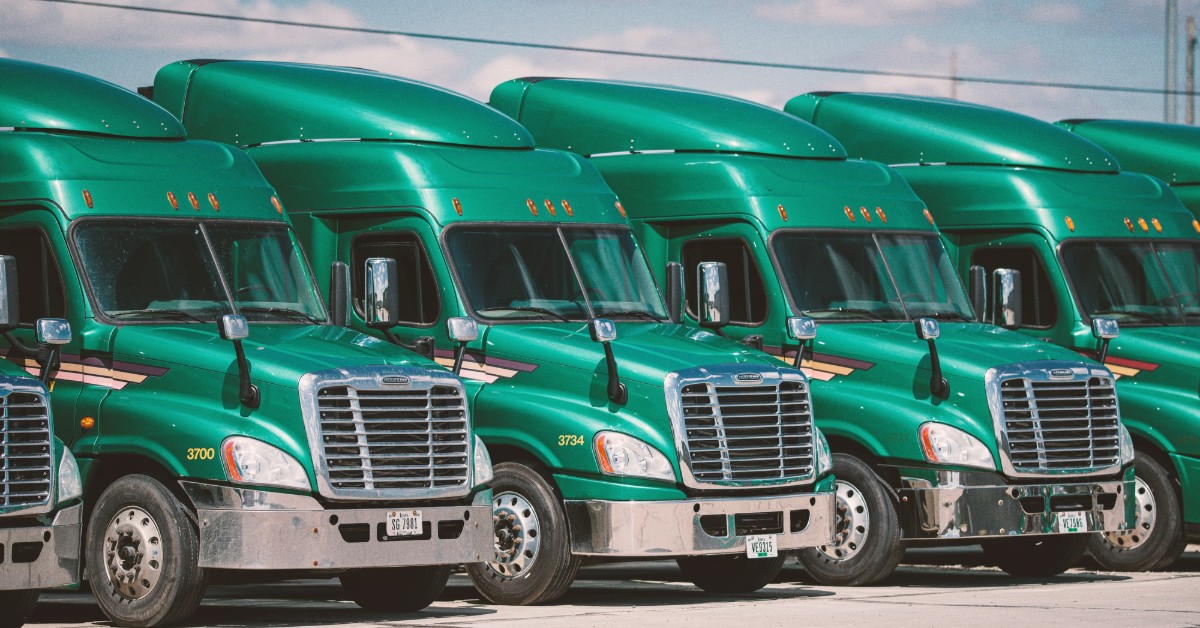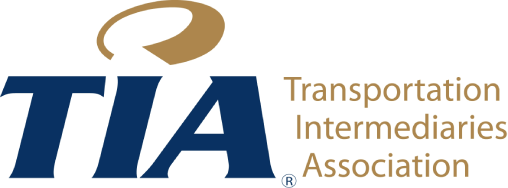Truck Financing for Carriers
- Posted on 16 Mar, 2022

Truck Financing for Carriers
From small delivery vans to 53-foot semi-trucks, freight trucks connect manufacturers to consumers by delivering about 72% of distributed products to markets and warehouses. According to the ATA (American Trucking Association), there’s a shortage of 80,000 truck drivers in the United States for a variety of reasons. The strong trucking demand, coupled with an acute labor shortage, has pushed wages and fees higher for truckers and carriers – from individual owner operators to carriers with large fleets. While the revenue side has improved, the equipment hurdle is not insignificant – with semi-trucks costs from $10,000 for used trucks to over $200,000 for a new commercial truck. With such a large capital requirement, trucking carriers have many questions about securing funding or hastening cashflow. So, what are some of the important terms to know and general dynamics of truck financing or trucking receivables factoring?
The 5 Cs of Credit
In general, key determinants of commercial credit are:
- Capacity – the timing of revenue minus expense demonstrates ability to repay a loan
- Capital – the initial investment and liquid assets your firm has available to fund operations
- Collateral – specific assets that can be tethered to pay a specific liability
- Conditions – market conditions, revenue opportunities, contracts, etc.
- Character – business history, personal credit history, experience in the field, etc.
Specifically for the trucking industry, some (or all) of the following information may be requested:
- Personal identification, including social security number or driver’s license
- Applicable permits
- Business license or registrations, including CDL (commercial driver’s license)
- USDOT number (U.S. Department of Transportation)
- Motor carrier number from the Federal Motor Carrier Safety Administration (FMSCA)
- Operating and financial history in the trucking industry
- The make, model, age, mileage, and type of truck(s) you want to acquire
- Information on how you will use your trucks or other equipment
- Down payment amount
- Proof of insurance, or the ability to acquire it
- Tax records or tax liens
- Financial records, debt to income ratios
- Cash reserves, working capital or current balance sheet
- Prior bankruptcies or past repossessions
- Childcare payments or other encumbrances
- Personal and/or business credit score
Related to the last bullet point, credit score, there are three major national credit bureaus (Equifax, Experian, and TransUnion). These entities compile records of your debts and payment consistency. They aggregate your credit history to predict your likelihood of paying current and future debts. Your payment likelihood is summarized as a ” FICO credit score.” FICO® is an acronym for Fair Isaac Corporation, the company that developed the credit scoring models used in more than 9 out of 10 U.S. lending decisions. Given the existence of identity theft or plain errors, the proactive borrower should review their credit report to safeguard from incorrect information becoming part of their credit history. Individuals can order a report from one of the three bureaus at any time for a nominal fee. Alternatively, a free report can be periodically ordered from AnnualCreditReport.com located:
P.O. Box 105281, Atlanta GA 30348-5281
Or by calling 1-877-322-8228
The reported criteria for determining your credit score are loosely divided into five categories:
- Payment history ~ 35%
- Amount currently owed relative to your available credit (credit utilization) ~ 30%
- Length of your credit history ~ 15%
- Recent credit applications ~ 10%
- Mix of credit accounts ~ 10%
FICO Scores range from 300 to 850.
- 579 and below is considered Poor
- 580–669 Fair
- 670–739 Good
- 740–799 Very good
- 800+ Exceptional
Whereas trucking companies need financing to fund their business, lenders deploy numerous factors to predict which loans have a higher default risk. The rate charged for loans can range from 5% to 30%, depending on a variety of risk factors. For more risky loans, lenders may:
- Charge higher interest
- Place more restrictions
- Ask for more assets as security for the loan
All other things being equal, these items will help to lower the cost and increase access to debt:
- The greater the time of operating in the trucking industry (often 3+ years is a minimum threshold)
- The higher your company’s profitability
- The longer you have had your CDL (often 2+ years is the minimum)
- The greater your down payment or down payment percentage (15% is often a starting point)
- The more cash reserves or other assets that could be used as collateral
- The higher your personal or business credit score
- Whether the truck you are acquiring is new or younger (compared to used or older)
- The better condition or lower mileage of the truck you are acquiring
- When a truck is being sourced from a dealership (versus a private seller)
At the end of the day, lenders want to be paid on time and in full. Data shows that companies at the beginning of their lifecycle have more downtime, higher startup costs, less command of their expenses, and therefore more default risk. To mitigate these risks, lenders want newer commercial vehicles to decrease the likelihood of breakdown. In the case that a semi-truck loan falls into default, they may need to repossess the underlying assets and therefore want less depreciation (usually fewer miles driven) and a lower percentage of the truck financed (and hence a higher down payment). Yes, charging more interest and restricting miles driven also hurts the operator’s profitability and ability to earn – so there is a balancing act.

Commercial Truck Loan versus Commercial Truck Lease
Loan or lease? Typically, commercial truck loans are cheaper in the long run compared to a lease. A commercial truck lease offers the flexibility of lower payments for a shorter period in the short run. A lease offers lower payment because you are financing the amount of depreciation from the time of acquisition until the time the lease expires. You are not building equity in owning the truck.
Whether you lease or buy a commercial truck with a loan depends on several factors. If you have a limited time commitment to the industry, can only afford smaller monthly payments and have limited funds for a down payment, then a lease might better fit for your needs. You will not own the truck at the end of your lease. To replace the asset no longer at your disposal, you may need to get a new or low mileage truck. If you want to own your truck at the end of the term, are planning for the long term, and have the wherewithal to fund a larger down payment, then you want to get a commercial truck loan. In either case, there are other expenses to budget for – such as truck insurance, training, communication equipment, auxiliary power units (APU) and general operating expenses such as gasoline or truck tire replacement.
Semi-truck financing with poor credit or no industry experience is a tough climb – but it is not insurmountable. Options such as “no money down” usually require stellar credit scores. For beginners, it may be easier to qualify for a lease than a traditional loan. For start-ups, equipment financing may require higher interest rate payments due to the presumed higher risk. An operating lease is closer to a rental contract with the leasing company holding the title to the truck. A capital lease is structured for the borrower to own the truck at the end of the lease usually for a nominal amount (like 10% the initial cost or even down to $1). This type of lease is close to a commercial truck loan. It may be easier to get commercial truck financing than a personal loan because your truck serves as collateral. Enhance the attractiveness of that collateral by assuring it is more consistently deployed and earning.
So How Can A & Z Trucking Help Carriers?
All other things being equal, lenders prefer predictability to unpredictability. For example, having a contract for recurring business versus ad hoc jobs won from time to time will convey more stability to a lender. Having worked with larger, nationally recognized companies versus smaller, local ones will be viewed as an indicator of your sales reach and quality level and therefore more favorably viewed by lenders. Commercial fleet financing will offer lower interest rates compared to your first truck acquisition (given the implication of longevity or scale of operations).
A & Z Trucking can help keep the utilization rate of your trucks more consistently high for both outbound and return trips – keeping deadhead miles lower. Since we offer FTL and LTL options for our shippers, we have a consistent flow of items needing to be carted. Our cross docking options and load consolidation services better match the varying needs of shippers to the existent capacity of our carriers. Our load board is a real-time snapshot of shipping opportunities that are suitable for our rosters of carriers. With our relationships established over the past several decades in the industry, we can connect you with advisers who offer more insights into improving credit, financing options, being pre-qualified for loans or even operational advice. The less risk and more predictability you can demonstrate to a lender — in terms of a consistent revenue pipeline — the more likely you are to qualify for the best rates.
If you need to expand your fleet or upgrade your equipment, then you should educate yourself about your financing options. Everybody starts somewhere and there are many financing companies competing to work with responsible fleet owners or owner operators who can demonstrate a history or a solid approach to shipping freight. While most financiers require a down payment, there are some who may finance up to 125% of your truck to cover additional costs such as tax, freight, or equipment installation. Look for those transport finance companies that offer a streamlined application process, quick credit decisions, timely disbursement, flexible payment options and have a demonstrated history of understanding, evaluating, and funding commercial truck loans and commercial truck leases.
Freight factoring might be more of an issue for a newer company or one with other capital needs as cash for fuel, repairs, and food must be incurred during the delivery cycle while payments on term can happen 30 to 60 days after you have delivered the contracted freight. To better match expenses and revenue, you can accelerate your receivables; ask about our Quick Pay Rates and Advances or other factoring options. Freight factoring is not technically a business loan. Rather, for upfront cash, you sell your invoices at a discount. Suppose you invoiced another company for $40,000 for services rendered, but with 30-day terms. A factoring company might purchase that invoice for $39,000 today (or at a 2.5% or $1,000 discount) and collect the $40,000 payment from the underlying company when due.





